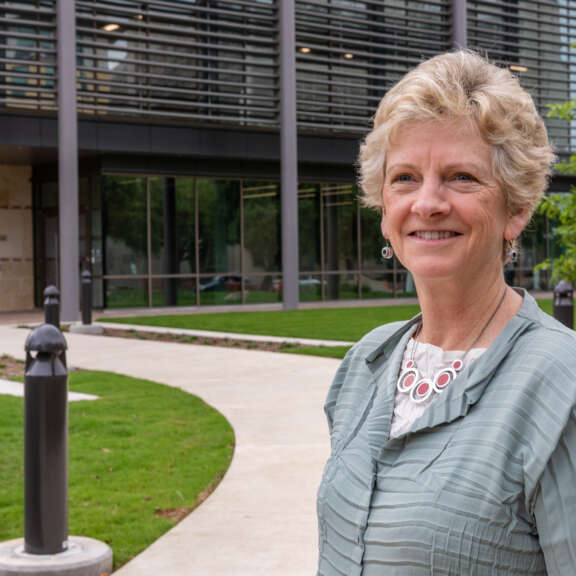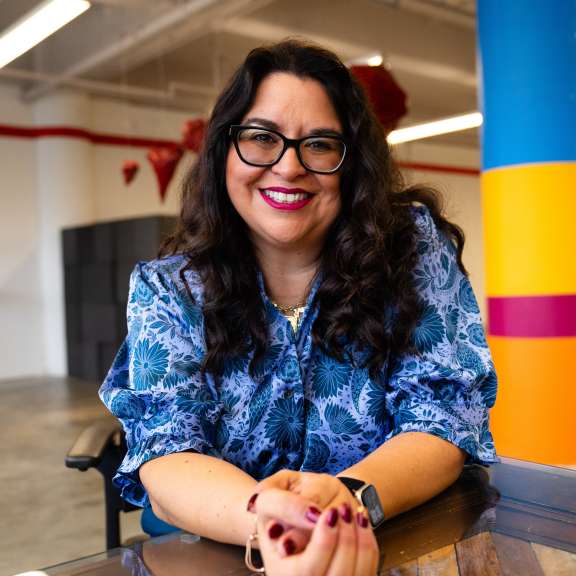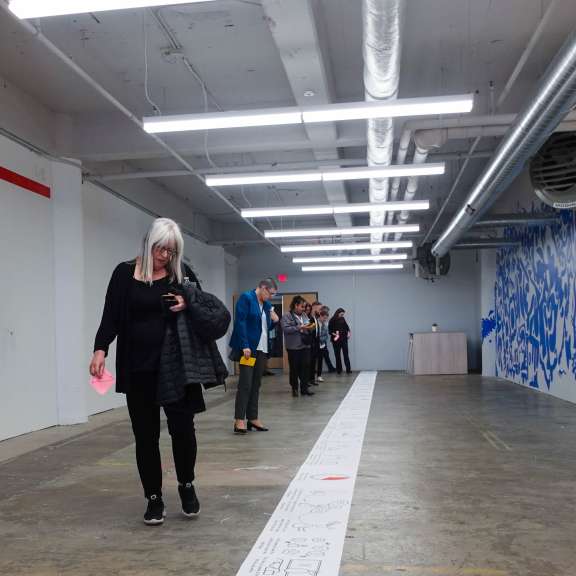“Show up as yourself from day one”
Raquel Hatter shares lessons from 30 years of leadership

From frontline worker, to nonprofit CEO, to state government appointee, to philanthropy—Raquel Hatter has worn many hats in her 30 years of public service.
Today, in her role as managing director of the Human Services Program at The Kresge Foundation, Raquel works to advance social and economic mobility with an applied racial equity lens.
Prior to her work at Kresge, Raquel was the first black woman (and youngest ever) to serve as CEO at Whaley Children’s Center in Flint, Michigan, and was the first black CEO of Family and Children’s Service in Nashville, Tennessee. She served as commissioner of the Tennessee Department of Human Services where she worked with staff, other state agencies, and community partners and members to identify ways to improve the outcomes for individuals and families. In that role she worked across child support, TANF, SNAP, vocational rehabilitation, and more—with a central focus on multigenerational family social and economic success.
To engage future generations of courageous leaders like herself, Raquel has also taught as an adjunct instructor at the community college and graduate level.
We sat down with Raquel to learn about her journey in public service and what she’s learned from fighting for families and communities across different sectors along the way.
Tell us a bit about your journey. What brought you down the career path you’re on today?
First and foremost, I'm a woman of faith, and that speaks to a lot of what gives me inspiration in my work and keeps me going. Being a woman of faith empowers me to be true to myself and stay true to my love for families and communities.
Second, I don't think of my work as a career. It's my purpose. I've never thought about it as a job.
I’ve held many different positions and been asked to do many things. Sometimes I get requests based on my resume and credentials. But there’s way more to me, and my story, than my resume.
Who or what inspired you to pursue this purpose in life?
I knew I was going to lead a life of service very early on because of my faith and my family.
I grew up in a multi-generational household. My mom and I lived with my grandparents, aunts, and uncles until I was 8. My mom worked in public service at the county level in human resources. She got my grandmother a job in juvenile justice in Michigan. I have an uncle who worked in juvenile justice and an aunt who worked for MDHHS. I come from a family of service people, including the military. It’s what I saw and knew.
No one told me to do this work. No one told my mom to do this work. It’s always been part of who we are and where we came from.
I should note that of my nearly 40 years of service more than 30 of those years have been in the nonprofit sector.
It sounds like you come from a really inspiring line of people. Is there a lesson from your mom that you consistently draw upon?
My mom is an unconditional lover and solution-focused.
I remember years ago, when I was a teenager at Flint Northern High School, there was an op-ed published in the local paper about the language used by Black youth at the time. A good friend and I spent all weekend talking about it. We were frustrated at the conclusions the article had made. We just kept fussing about it.
At one point, my mom looked at us and said, “Are you going to be part of the problem, or the solution? This is all you’ve talked about all weekend—why don’t you just write back?”
We did, and she took it to the journal to see if they’d publish it for us. That's the kind of mother I come from. But it wasn’t without struggle either. I know what it’s like to struggle, and I know what it’s like to struggle less.
Your knowledge and work covers such depth. You've seen things from a nonprofit angle, from government, and now from a foundation. How do you draw upon those experiences? How does it alter the way you think about doing change work and investing?
No matter what sector, I’ve learned that people tend to feel like they have to default to the way the current system is designed. They assume it can’t be different. As much as someone may want to change the system, they come up against these barriers that seem or feel unmovable.
I think my experience has helped me cultivate a skill, in partnership with others, for knowing what's possible, and how to make it happen.
I know what it's like to be a nonprofit leader trying to lead change. So now, when I talk to nonprofit leaders, they appreciate the fact that I've sat in the same seat. I also know what it’s like to be a governor-appointed state official leading a large system and I also know what it’s like to work on the frontline with families and communities.
Our grantee partners seem to appreciate the fact that I have been in both seats.
I can have real conversations about how to ensure mutual accountability between the public and private sectors.
When you look at the types of things that you're involved with today, where are you most optimistic and why?
I’m most optimistic about the fact that we’re starting to engage the community and people more and more in the work we do. It's like, you buy a medication that is supposed to help you. There are lots of ingredients in it, but if it’s missing one key ingredient, it’s not going to work.
The community and people in our work are the active ingredient. The reality is, they know the answers. We need to be listening to them as much as possible, engaging them as partners, and honoring their power.
What keeps you up at night?
What leaves my heart heavy all the time right now is the path that the country is on in terms of hate, racism, and all the -isms. The idea that people are disposable—or at least certain types of people are. But, I’ve been trying to get more sleep at night. This is the reason I have to sleep. So I can get up and be ready to stay in this good fight, that I know good people are going to win.
As you travel through work, both exciting and difficult, how do you keep yourself going? What energizes you?
It’s a few things. It's surrounding myself, with the right people. It’s guarding my heart, and my spirit.
There's not a day at Kresge, when I don't get to talk to people who are—in my language—“off the hook”. I get to speak with some of the smartest, most amazing people in this country, at Kresge and at the national and community levels, who are too often under-appreciated and invisible. That’s what I get to do every day. If that doesn’t energize and inspire you, I don’t know what will.
If you could leave readers and leaders with one piece of advice, what would it be?
Show up as who you are; be authentic from day one. It's a way to build trust and transparency. Especially when you’re new to a place, it’s important for people to be able to learn who you are and how you operate. Give people an orientation on yourself so there’s no guessing what you’re all about.


